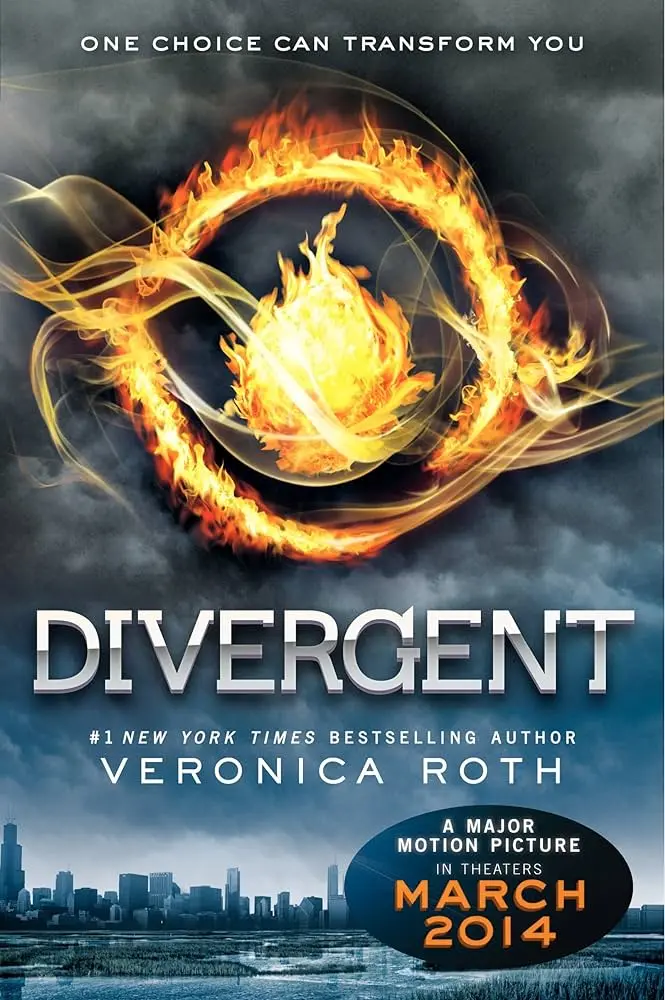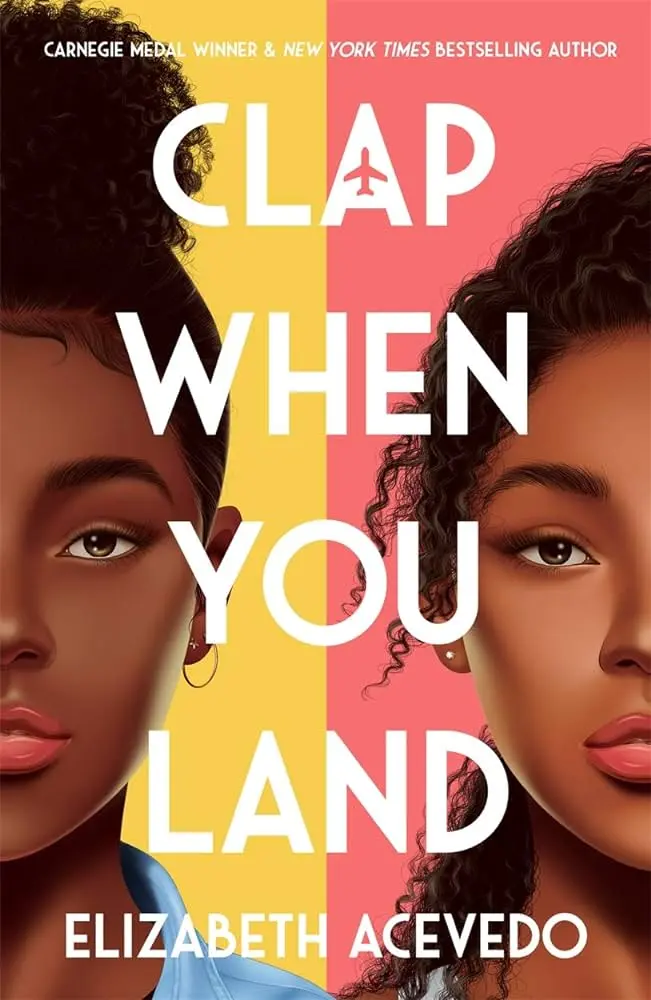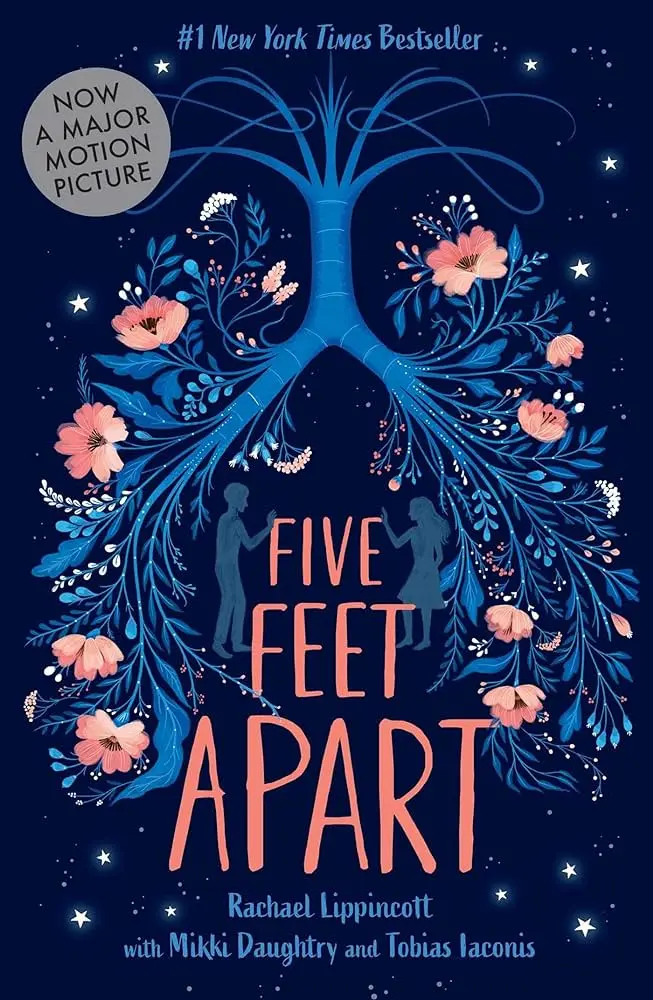The Setup: Welcome to the Dystopian Kindergarten with Divergent
The first book of the Divergent series (aptly named…“Divergent”) throws us into a post-apocalyptic Chicago where society’s been divided into five factions based on virtues: Abnegation (selflessness), Dauntless (bravery), Erudite (intelligence), Amity (peace), and Candor (honesty). Sounds structured, right? Yeah, no. It’s about as stable as a house of cards in a hurricane. Our protagonist, Beatrice “Tris” Prior, starts in Abnegation but jumps ship to Dauntless because who wouldn’t trade a life of humble servitude for one where you jump off moving trains and beat each other senseless?
Tris finds out she’s “Divergent,” meaning she doesn’t fit neatly into any one faction. This apparently makes her a threat because dystopian societies love their rigid categories. It’s an interesting concept that quickly devolves into a mess. The factions are supposed to maintain societal balance, but the logic behind them is as sturdy as wet tissue paper.
Characters: Walking Stereotypes and Special Snowflakes
Let’s start with Tris. She’s your typical YA heroine—conflicted, special, and a bit of a pain. She’s Divergent, which in this world is a big no-no. Her journey from meek Abnegation girl to fierce Dauntless warrior is predictable, hitting every YA trope on the way. She’s got fears, makes tough choices, and naturally, falls in love with the brooding and mysterious Four.
Because of course she does.
And Four. His name is Four because he has four fears. That’s it. This guy is the epitome of the tortured, enigmatic love interest. Their romance is swoony if you’re into that, but it’s also cookie-cutter predictable. It progresses in a straight line with no real surprises.
World-Building: Shallow as a Puddle
The world-building is like trying to build a castle on sand. The faction system is intriguing but falls apart faster than a budget cosplay at Comic-Con. It’s impractical and frankly, ridiculous. The Dauntless, who are supposed to embody bravery, act more like adrenaline junkies on a death wish. Jumping off trains, scaling buildings, beating each other to a pulp—it’s all about as brave as licking a frozen flagpole.
The factions are meant to prevent conflict, but they create more issues than they solve. It’s a dystopia with all the depth of a kiddie pool. The world is more interesting in concept than execution, lacking the nuance and detail to make it feel real.
Plot: A Frantic Dash Through Familiar Territory
The plot of “Divergent” speeds along, which is both good and bad. On the plus side, it keeps you hooked. On the downside, it sacrifices depth and character development. Tris faces trials, uncovers secrets, and we get the big reveal about the Divergent being a danger to society. But here’s the thing: these revelations are about as surprising as finding out water is wet. Roth telegraphs every twist from a mile away. There’s no subtlety, no slow-burn suspense—just wham, bam, thank you, ma’am.
Writing Style: Serviceable but Forgettable
The prose is straightforward and gets the job done, but it doesn’t elevate the material. The dialogue can be stilted, and the descriptions are often flat. Roth is great at pacing and action scenes, but the interactions between characters often feel forced. It’s functional writing, which works for the target audience but doesn’t leave a lasting impression. In other words, I can tell you an overview of the book….but I can’t tell anything specifically because nothing was like “OMG that was so cool I had to read it three times!!!”
Themes: Fear, Identity, and Choice
Fear and how we face it is a central theme in “Divergent.” Tris’s journey is about overcoming her fears and discovering her identity in a society that demands conformity. Roth does well here, capturing Tris’s internal struggle and the courage it takes to defy societal norms. The theme of choice is also strong—Tris’s decision to join Dauntless sets the stage for her transformation. But these themes – while well done – are often overshadowed by the relentless pacing and action-heavy plot.
Final Thoughts: The First in a Trilogy of Mixed Results
“Divergent” is the first book in a trilogy that promises a lot but doesn’t always deliver. It’s an engaging read with a compelling protagonist and plenty of action, but it’s also riddled with clichés and shallow world-building. It’s a book that’s easy to get caught up in but hard to take seriously once you start thinking about it.
If you’re into dystopian YA, it’s worth checking out, but don’t expect it to blow your mind. It’s entertaining, but it doesn’t hold up to close examination. It’s the literary equivalent of a popcorn movie—fun in the moment but not something you’ll remember for its depth or originality.
In the end, “Divergent” is a ride through a world that’s more style than substance. Enjoy it for what it is, but don’t expect it to be more than a fleeting escape. And that’s okay. Not every book needs to be a masterpiece. Sometimes, we just need a fun, fast-paced adventure with a bit of heart. And on that front, “Divergent” delivers.
Moving to Book 2: “Insurgent”
Alright, we tackled “Divergent,” so let’s move on to the second book in the series: “Insurgent.” Fair warning – if you thought the first book had issues, this one’s got more twists and turns than a soap opera on fast-forward.
“Insurgent” picks up right where “Divergent” left off. Tris and her band of merry misfits are dealing with the fallout of the Erudite’s attack on Abnegation. The city is in chaos, factions are at each other’s throats, and Tris is grappling with some serious PTSD. Sounds like a recipe for high drama, right? Well, sort of.
Plot: A Haphazard Dash Through Chaos
The plot of “Insurgent” is a frantic race from one crisis to the next. Tris, Four, and the gang are on the run, seeking allies among the other factions and the factionless (yeah, they’re a thing now). The narrative jumps from one intense situation to another with barely a moment to catch your breath. It’s exhausting and, frankly, a bit disorienting.
Roth tries to build on the world she created in “Divergent,” but instead of adding depth, she just piles on more confusion. The faction system is already a mess, and now we have the factionless stirring the pot. The result? A plot that feels like it’s being made up as it goes along.
Characters: More Angst, More Problems
Tris is still our main gal, but now she’s dealing with even more angst. She’s haunted by the deaths she witnessed (and caused) in the first book, and her relationship with Four is strained because, you know, drama. Tris’s character arc is supposed to show her growth and resilience, but it often feels like she’s just flailing around in a sea of emotions.
For example Tris’ endless cycle of guilt and self-doubt gets old fast. Yes, she’s been through a lot, but her constant internal monologue about her failings and fears is tiresome.
Four, meanwhile, is grappling with his own issues. His abusive father, the revelation of his mother’s involvement with the factionless, and his strained relationship with Tris all come to a head. But instead of feeling like genuine character development, it often reads like a laundry list of trauma. Also, his brooding intensity was interesting in the first book, but here it just feels one-note.
The supporting characters get a bit more screen time, but they’re mostly just there to fill out the cast. Christina, Peter, Caleb—none of them really evolve beyond their roles from the first book. They’re just more bodies to throw into the chaos.
World-Building: Expanding the Mess
“Insurgent” tries to expand on the world-building from “Divergent,” but it ends up creating more questions than answers. The faction system, which was already on shaky ground, is now even more convoluted. The introduction of the factionless adds another layer of complexity that the story doesn’t really need.
The big reveal in “Insurgent” is the existence of a secret outside the city’s walls. This is supposed to blow the characters’ minds and set up the next book, but it feels like a cheap trick. It’s a classic case of Roth trying to up the stakes without laying the proper groundwork.
Themes: Trust, Betrayal, and Identity Crisis
The central themes of “Insurgent” are trust and betrayal. Tris has to figure out who she can trust in a world where alliances shift faster than the weather. Her relationship with Four is tested repeatedly, and her trust in her friends and family is shaken to the core.
Identity is another big theme. Tris is struggling to reconcile her Divergent nature with the roles society tries to force on her. She’s caught between her loyalty to her friends and her need to find her own path. It’s a classic YA dilemma, but Roth doesn’t bring anything new to the table.
Final Thoughts: The Middle Child of the Trilogy
“Insurgent” is the middle child of the Divergent trilogy, and it shows. It’s trying to do too much and ends up accomplishing too little. The action scenes are plentiful, but they lack the impact of those in “Divergent.” It’s hard to care about yet another shootout or fistfight when the stakes are so poorly defined. And the big reveals? They’re more like big yawns. The twists are telegraphed from miles away, and the climactic moments fall flat. The frenetic pace, muddled plot, and character overload make it a frustrating read. If you’re committed to seeing the trilogy through, you’ll slog through “Insurgent,” but don’t expect it to wow you.
In the end, “Insurgent” is an angst-ridden mess that tries to expand the world of “Divergent” but ends up making it even more convoluted. It’s got moments of excitement and some decent character development, but they’re buried under layers of confusion and melodrama. If you’re a die-hard fan of the first book, you might find something to enjoy here, but for everyone else, it’s a bit of a slog.
And there you have it. “Insurgent” is a wild ride through a world that’s spinning out of control. Enjoy it if you can, but don’t be surprised if you come out the other side feeling a bit dizzy.
The Grand Finale – “Allegiant”
“Allegiant” picks up right after the cliffhanger ending of “Insurgent.” Tris and her crew have discovered that their city is part of a larger experiment, and now they’re ready to face the world outside the fence. The stakes are higher than ever, but does the book deliver? Let’s dive in and find out.
Plot: Sprawling and Unfocused
The plot of “Allegiant” takes us beyond the city walls to a whole new world of factions and power struggles. The Bureau of Genetic Welfare is revealed to be the puppet master behind the experiment, and our heroes must navigate this new environment while uncovering the truth about their society.
The story is split between Tris and Four’s perspectives, which adds variety but also fragments the narrative. The dual POVs can be jarring, and the constant switching sometimes disrupts the flow. The plot is packed with twists and turns, but many of them feel forced or predictable.
Characters: Growth or Regression?
Tris continues to grapple with her identity and her role in this new world. She’s determined and brave, but her character development feels uneven. She swings between confident leader and insecure teenager, making it hard to pin down her growth.
Four, on the other hand, is a mess. His inner turmoil is cranked up to eleven, and his decisions often seem erratic. The strong, silent type from the first book is now brooding and conflicted to the point of frustration. His relationship with Tris suffers as a result, with their dynamic oscillating between strained and supportive.
The supporting characters get more screen time, but they remain largely underdeveloped. Caleb, Christina, Peter—they’re all there, but their arcs feel tacked on rather than integral to the story. It’s as if Roth wanted to give everyone their moment but couldn’t quite integrate it smoothly.
World-Building: Too Much, Too Late
“Allegiant” attempts to expand the world beyond the city, introducing us to the Bureau and the concept of genetic purity. The idea is intriguing but poorly executed. The explanations are dense and often confusing, dumping loads of information without clear context. It feels like Roth is trying to cram too much into the final book, leading to a bloated narrative that struggles to maintain coherence.
The genetic purity plotline is ambitious but ultimately falls flat. It raises ethical questions and societal issues, but the exploration is superficial. The new setting and characters lack the depth needed to make this expansion feel organic.
Themes: Identity, Sacrifice, and the Greater Good
The central themes of “Allegiant” revolve around identity, sacrifice, and the greater good. Tris and her friends must decide what they’re willing to sacrifice for the truth and the future of their society. The book delves into the moral complexities of genetic manipulation and the cost of utopian ideals.
However, these themes are often overshadowed by the convoluted plot and inconsistent character development. The big ideas get lost in the noise, making it hard to fully engage with the ethical dilemmas presented.
A Rocky Conclusion
“Allegiant” is the final book in the Divergent trilogy really just doesn’t work. The ambitious plot, fragmented narrative, and inconsistent character arcs make it a frustrating read. If you’ve made it this far, you’ll want to see how it all ends, but be prepared for a bumpy journey.
While I had my issues with “Divergent,” , and had serious issues with “Insurgent,” I have to say that “Allegiant” struggles to stick the landing. It’s a series that promises much but often fails to deliver. There are moments of brilliance, but they’re overshadowed by the overall chaos.
In the end, “Allegiant” shows all difficulties of wrapping up a complex series. It’s bold and ambitious but ultimately flawed. If you’re a dedicated fan, you’ll find things to appreciate, especially if you got this far (book 3) already. But don’t be surprised if you’re left feeling a bit let down.
Subscribe to our newsletter and get two free novels!



